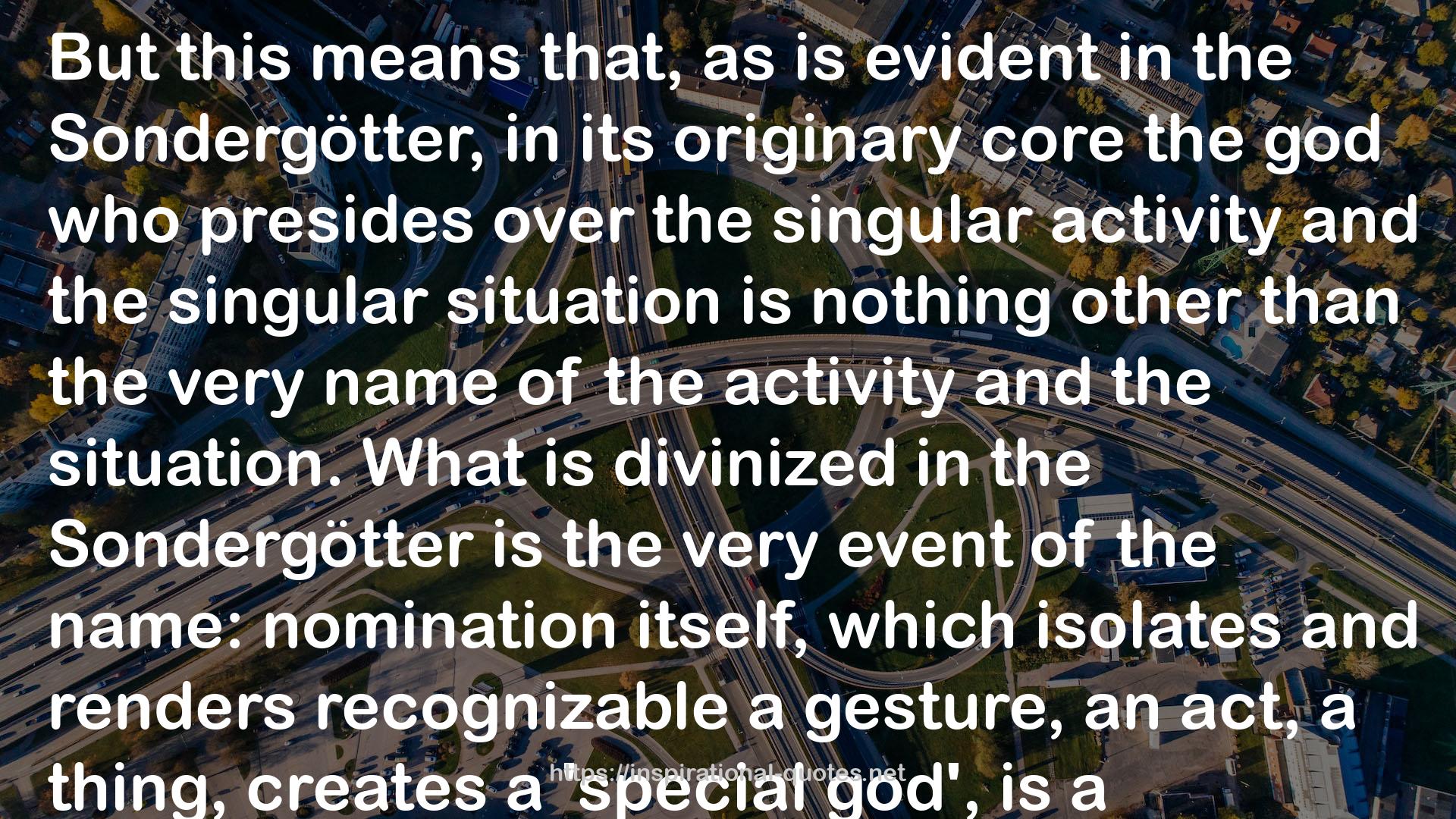" But this means that, as is evident in the Sondergötter, in its originary core the god who presides over the singular activity and the singular situation is nothing other than the very name of the activity and the situation. What is divinized in the Sondergötter is the very event of the name: nomination itself, which isolates and renders recognizable a gesture, an act, a thing, creates a 'special god', is a 'momentary divinity'. The nomen is immediately numen and the numen immediately nomen. Here we have something like the foundation or the originary core of that testimonial and guaranteeing function of language that, according to the traditional interpretation, the god came to assume in the oath. Like the Sondergott, the god invoked in the oath is not properly the witness of the assertion or the imprecation: he represents, he is the very event of language in which words and things are indissolubly linked. Every naming, every act of speech is, in this sense, an oath, in which the logos (the speaker in the logos) pledges to fulfill his word, swears on its truthfulness, on the correspondence between words and things that is realized in it. And the name of the god is only the seal of this force of logos - or, in the case in which it falls into perjury, of the male-diction that has been brought into being. "
― Giorgio Agamben , The Omnibus Homo Sacer
